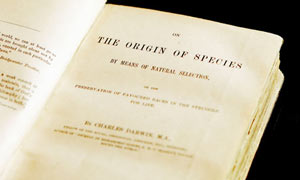Learning Outcome:
In review of learning outcomes I think there is little to add to the work I have already done in my Prezi that I spent a few hours making just a few weeks ago. I have learned how to use a lot of different tools and put them into application.
One thing I have taken into account is the direction from Professor Zappalla from this last review. I have set up my blog so that it is networked with my facebook page. Although it’s too early to see many results, I have had some feedback and connection from family members who didn’t know I had set up a new blog.
Personal Learning Experience:
Throughout the semester I have learned how to learn to learn. I have found how to quickly find learning tools and sites to get the resources I need. For example, just recently a few weeks ago in preparation for the final project I was working on our PowerPoint presentation. However, in the spirit of web 2.0 I wanted to put it up for review on my blog. So I went online and quickly found a review site of different PowerPoint hosting sites. I then picked one and signed in by way of my facebook account. From there I was able to post it online and put it up for feedback. More than learning how to use a tool, I have learned how to learn how to use tools.
Highlight reel of the semester in Digital Civilization.
Some of the greatest posts I have made during the semester are as follows.
Harvard Classics: This has been by far one of my favorite posts. The main reason I like this post is mostly because I didn’t do it out of requirement, but because it was of personal interest. This post was an extra post I put in one week that I put out because I wanted to get feedback from others in this class. I knew students in our class would have a lot of expertise in the area and would offer some good insights.
DigiTech Blogs: Another post that I really enjoyed was my search for digital blogs. In my personal outreach to find other blogs and sites with an emphasis in modern technological innovations I stumbled upon a handful of sites that have continued to amaze me. So many times we think of things and tell ourselves that it would be cool to have them in the future, but then you look and find that it is already there!
The Divinity in Natural Selection: This post is one of the best examples of deeper research. In preparation for this post I personally got a copy of Darwin’s Origin of Species and read a couple sections and scanned through even more. I personally enjoyed reading through all the examples and depth that Darwin put into his works. I think the best part of it all was that I was sitting in a Jacuzzi as I was reading!
Where I will go from here….
Although it has been a good opportunity for me to learn and grow through regular use of this blog I feel it will undergo some serious changes. During this next summer I am going to completely change the theme. It will be restructured and designed to help me as I work on my Honors thesis as I am in South America. I am going to use it as a means to stay connected with my referee and assisting professor back in Provo while I am off in the field doing research.























